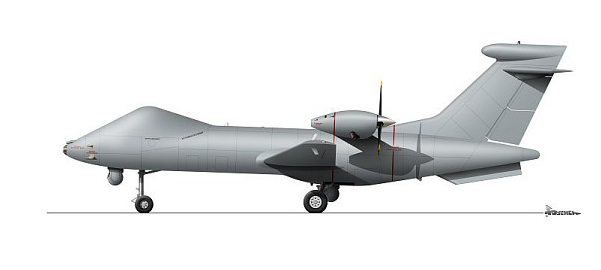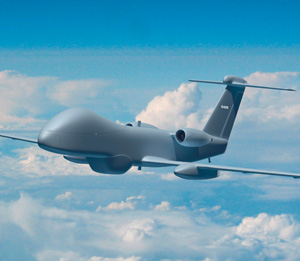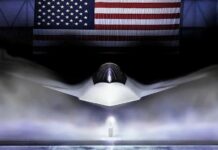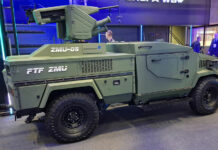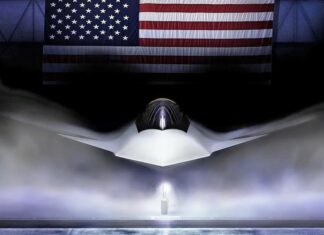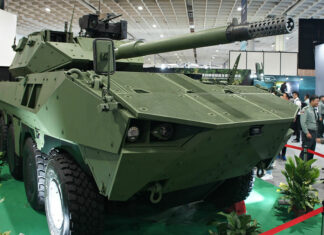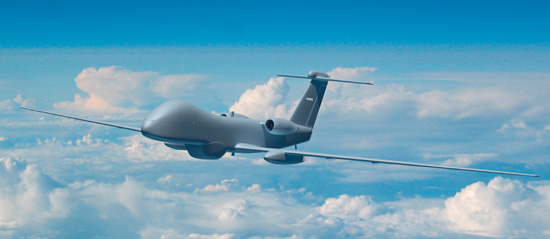
Paris, Le Bourget: European aerospace industries and defense establishments are promoting pan-European collaboration in launching a collaborative development of Medium Altitude, Long Endurance (MALE) drone capability that will rely on the collective knowhow, skills and technologies of member countries. EADS Cassidian, Dassault Aviation and Finmeccanica Alenia Aermacchi declare their readiness to coordinate on such a program supporting the security needs of European governments and armed forces. Defense-Update reports from the Paris Airshow.
 Similar collaborative programs pursued in the past included the Tornado strike fighter, Typhoon 4th Generation fighter plane, the Aster anti-aircraft/anti-missile weapon system, and FREMM class frigates, developed under French-Italian collaboration. Other programs undertaken more recently included U.S. participation, such as the AGS and MEADS encountered significant obstacles in cost sharing and access to state of the art technology. Similar problems were also encountered with the enhancement of General Atomics MQ-9 Reaper drones, whose weaponization were refused by the US administration. Another European cooperative program in the field of UAS, known as nEUROn, lead by Dassault, is aimed to conceive, produce, and test the first European Unmanned Combat Aircraft System (UCAS) demonstrator with stealth characteristics.
Similar collaborative programs pursued in the past included the Tornado strike fighter, Typhoon 4th Generation fighter plane, the Aster anti-aircraft/anti-missile weapon system, and FREMM class frigates, developed under French-Italian collaboration. Other programs undertaken more recently included U.S. participation, such as the AGS and MEADS encountered significant obstacles in cost sharing and access to state of the art technology. Similar problems were also encountered with the enhancement of General Atomics MQ-9 Reaper drones, whose weaponization were refused by the US administration. Another European cooperative program in the field of UAS, known as nEUROn, lead by Dassault, is aimed to conceive, produce, and test the first European Unmanned Combat Aircraft System (UCAS) demonstrator with stealth characteristics.
The Israeli Heron TP alternative has not officially cleared to carry weapons, according the the Israeli policy of not admitting Israeli drones are used or capable of carrying weapons, although, according to foreign sources, such capabilities have been available for decades. Germany, France and Spain have developed cooperative channels with Israel Aerospace Industries (IAI) in the past, pursuing the use of Heron TP as a future MALE platform.
As for an independent European advanced MALE capability, such a joint program would support the capability needs of European armed forces while optimizing the difficult budgetary situation through pooling of research and development funding.
With a new development, critical requirements around the certification of drones, allowing their safe passage and operation in European air space, would inherently be built into the program from the onset. European sovereignty and independence in the management of information and intelligence would be guaranteed while at the same time delivering a robust system resilient against cyber attacks. The program would be orientated to foster the development of high technologies and contribute to sustaining key competencies and jobs within Europe.
Cassidian has tried to develop a MALE Drone in the past, known as the Talarion, but this program was shelved in 2012. The Italian Finmeccanica group has several UAS programs but currently do not have a platform in the scale required for a future European Advanced MALE.
Dassault has already collaborated with IAI and BAE Systems on two other programs – the Heron TP with IAI and Telemos, an exclusive research and development program struck with BAE Systems, anticipating a future MALE program for the British Royal Air Force. However, due to lack of government support for the program, the Telemos cooperation has now been shelved in favour of collaboraive work on UCAS. It is not clear yet how this exclusivity will effect Dassault joining a European Advanced MALE program.
Alenia Aermacchi’s Unmanned Aerial Systems (UAS) main activities are focused on the development of technological demonstrators such as Sky-X, Sky-Y, and Neuron, that are aimed at the definition and production of advanced MALE products (Medium Altitude Long Endurance) and UCAS Unmanned Combat Aerial System).
Source: Defense-Update
